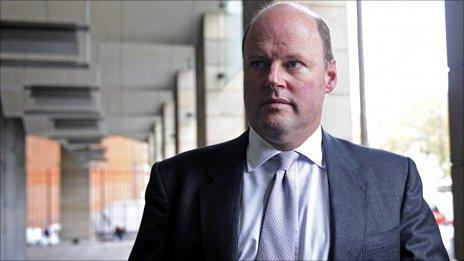Europe - When is a veto not a veto?
- Published
- comments
What exactly did David Cameron veto when he found himself one against 26 in Brussels last year? That is the question Labour asked at the time and now they are being joined on the morning after another night before in Brussels.
David Cameron's answer is simple - he vetoed a new EU-wide treaty or, as he put it last night: "We're not in this Treaty, we are not part of it, we're not bound by it, we don't have to ratify it, don't have to take it to the British parliament - that is what the veto secures you."
What he did not veto was the creation of a new Fiscal Union (or F.U. as his critics delight in calling it) or the use of EU institutions to support it or the ambition of Germany to incorporate this into existing EU treaties within 5 years.
In other words, David Cameron decided to opt out of a new European Treaty rather than block it or, as the sceptics wanted, extract a price for his acquiescence.
That is why Labour call it a phantom veto and why some sceptics are beginning to mutter that he has turned out to be more John Major than Margaret Thatcher.
UPDATE: As Ed Miliband mocked David Cameron for his Euro negotiating stance and Eurosceptics complain that the PM is more Major than Thatcher it's interesting to note that on last week's Decision Time David Miliband praised John Major's negotiating skills if not his objectives. You can listen to the programme here
PS: Tomorrow it's Decision Time on Ed's favourite subject the "Squeezed Middle" - with Alistair Darling
- Published30 January 2012

- Published29 January 2012
- Published27 January 2012
